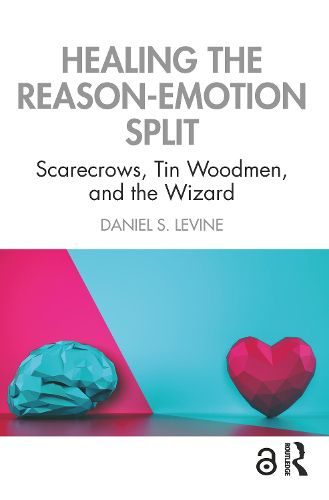Readings Newsletter
Become a Readings Member to make your shopping experience even easier.
Sign in or sign up for free!
You’re not far away from qualifying for FREE standard shipping within Australia
You’ve qualified for FREE standard shipping within Australia
The cart is loading…






Healing the Reason-Emotion Split draws on research from experimental psychology and neuroscience to dispel the myth that reason should be heralded above emotion.
Arguing that reason and emotion mutually benefit our decision-making abilities, the book explores the idea that understanding this relationship could have long-term advantages for our management of society’s biggest problems. Levine reviews how reason and emotion operated in historical movements such as the Enlightenment, Romanticism and 1960s’ counterculture, to conclude that a successful society would restore human connection and foster compassion in economics and politics by equally utilizing reason and emotion.
Integrating discussion on classic and contemporary neurological studies and using allegory, the book lays out the potential for societal change through compassion, and would be of interest to psychologists concerned with social implications of their fields, philosophy students, social activists, and religious leaders.
$9.00 standard shipping within Australia
FREE standard shipping within Australia for orders over $100.00
Express & International shipping calculated at checkout
Healing the Reason-Emotion Split draws on research from experimental psychology and neuroscience to dispel the myth that reason should be heralded above emotion.
Arguing that reason and emotion mutually benefit our decision-making abilities, the book explores the idea that understanding this relationship could have long-term advantages for our management of society’s biggest problems. Levine reviews how reason and emotion operated in historical movements such as the Enlightenment, Romanticism and 1960s’ counterculture, to conclude that a successful society would restore human connection and foster compassion in economics and politics by equally utilizing reason and emotion.
Integrating discussion on classic and contemporary neurological studies and using allegory, the book lays out the potential for societal change through compassion, and would be of interest to psychologists concerned with social implications of their fields, philosophy students, social activists, and religious leaders.